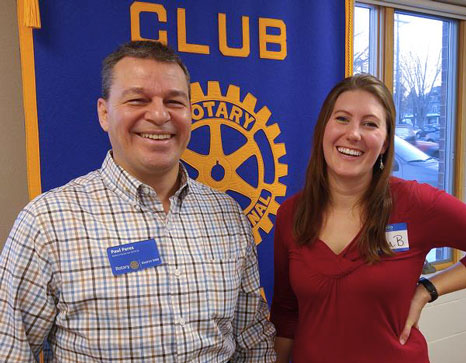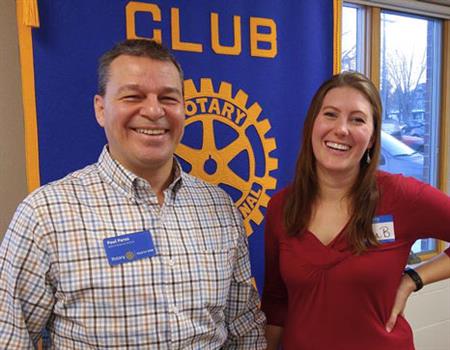Human trafficking has been selected as Rotary’s next global initiative, following the incredible work we are close to finishing with polio eradication. We acknowledge that we are not the expert in this area, but know that we can play the important role of convener, bringing together and supporting those who are already working on human trafficking.
“If you are neutral in situations of injustice, you have already chosen the side of the oppressor.”
- Archbishop Desmond Tutu
- Archbishop Desmond Tutu
Emma Becker’s involvement with work to fight human trafficking began when she was in nursing school in St. Louis, which is a major hub for human trafficking. She recently relocated to Rochester, joined Rotary, and immediately got involved with our Rotary District’s work around human trafficking.
Human trafficking has been selected as Rotary’s next global initiative, following the incredible work we are close to finishing with polio eradication. We acknowledge that we are not the expert in this area, but know that we can play the important role of convener, bringing together and supporting those who are already working on human trafficking.
Our working definition of human trafficking is “When one person obtains or holds another person in compelled service.” Estimates of global human trafficking range from 21-46 million victims worldwide, with an estimated 1.5 million in the US. While this does encompass things like sex workers, it also includes others who are enslaved working as housekeepers, nannies, etc. Human trafficking is a $150B annual business, including $99B from sex trafficking and $51B from labor trafficking.

While anyone can be a victim of human trafficking, certain persons are more vulnerable: People living in poverty, minors in the welfare system, homeless and runaway youth, immigrants, and people with a history of abuse or trauma. Human trafficking occurs in every country in the world. 71% of labor trafficking victims enter the US on legal visas, paying an average of $6,150 to secure their job in the US. 1 in 6 runaway youth is in danger of being trafficked within the first 72 hours of leaving home.
Minnesota and the Twin Cities are #13 in the country for human trafficking. Access to I-35 and I-90 easily connects drivers to several other states. In the past two years, DHS has intervened with approximately 900 at-risk, sexually exploited trafficked youth. While numbers in Wisconsin are better, human trafficking is still an issue; while about 70% of cases are in Milwaukee, human trafficking has been documented in all 72 counties. While primarily women and girls, men and boys are also impacted.
How can you get involved?
- Educate yourself on this issue. Invite other speakers to provide your club with more information on this issue. Encourage other organizations where you are involved to also learn more about this issue.
- Identify local leaders in your club to participate in the Engage Together Summit (February 23, 2018) in St. Louis Park, MN. Consider leaders from churches, businesses, education, law enforcement and community-based service organizations. Volunteers are also needed to help the day of this event! For more information, contact Emma at ebecker102@gmail.com.
